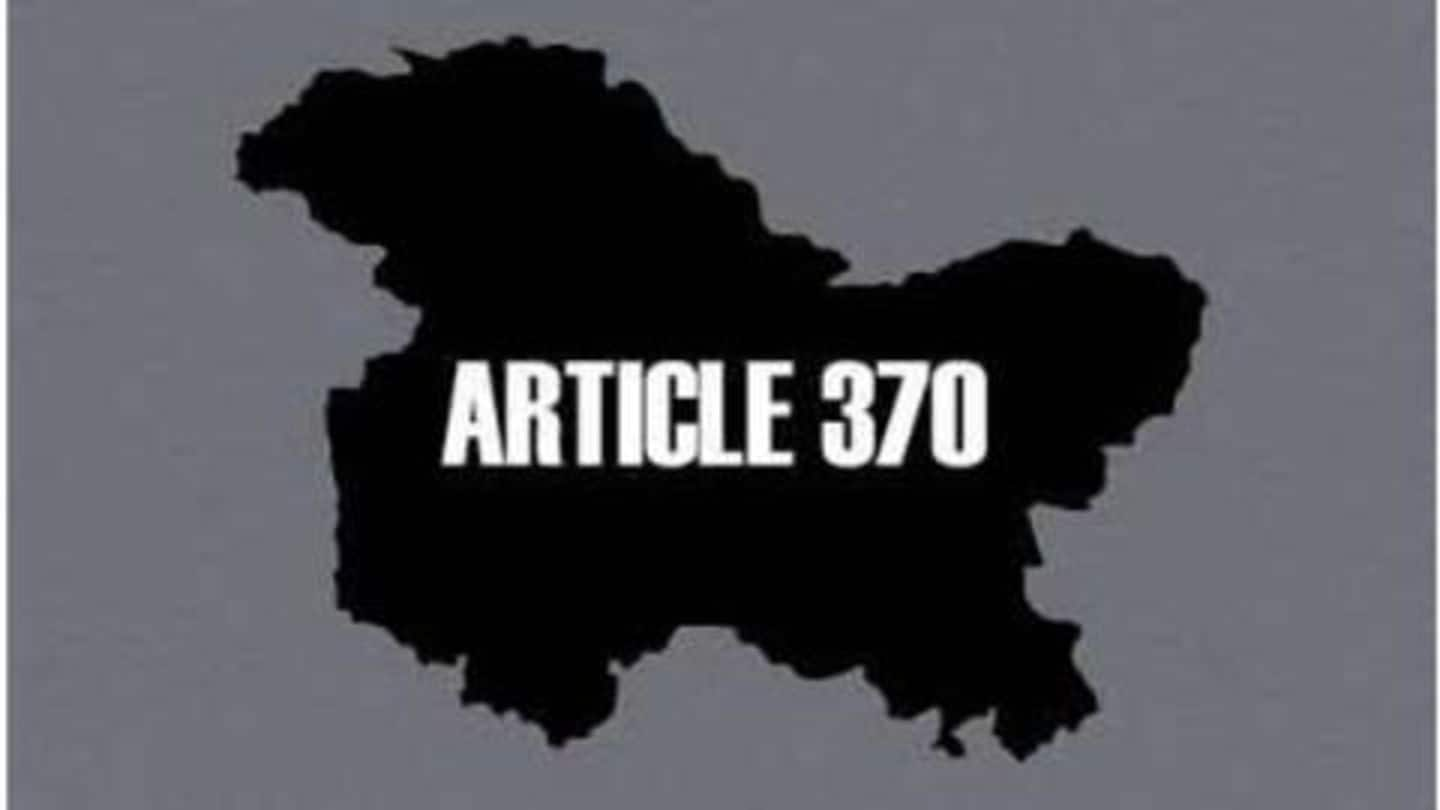
What is Article 370? Here's all you need to know
What's the story
Following the deadly terror attack in Jammu & Kashmir's Pulwama on 14 February in which 40 CRPF personnel were martyred, demands for scrapping Article 370 of the Indian Constitution have intensified.
Article 370 grants special status to Jammu & Kashmir and also limits the powers of the Parliament for making laws concerning the state.
Here's all you need to know about Article 370.
About
What exactly is Article 370 of the Constitution?
Article 370 of the Indian Constitution extends a provision by which Jammu & Kashmir enjoys special autonomous status.
The residents of the state live under a separate set of laws, such as those relating to "citizenship, ownership of property, and fundamental rights".
All the provisions of the Constitution that apply to other Indian states are not applicable to the northern state.
Background
Article 370, a temporary provision, according to Constitution
Article 370 is a "temporary provision" drafted in the Constitution's Part XXI: Temporary, Transitional and Special Provisions.
The architect of the Constitution, Dr. BR Ambedkar, had refused to draft Article 370. The then PM Jawaharlal Nehru, in 1949, asked Kashmiri leader Sheikh Abdullah to draft it. However, Gopalaswami Ayyangar, a Union Minister and former Diwan to J&K's Maharajah Hari Singh, eventfully drafted Article 370.
The Article
Article 370 restricts applicability of various Constitutional provisions to J&K
Article 370 restricts the applicability of various Constitutional provisions to J&K, limiting the Parliament's power to make laws on subjects falling under the Union and Concurrent lists.
According to the article, except for laws related to defense, foreign affairs, finance, and communications, the Parliament requires the J&K state government's agreement for applying all the other laws in the state.
Information
Residents of other Indian states cannot purchase property in J&K
Under Article 370, as mentioned before, J&K has separate laws for its residents compared to other Indians, including laws concerning citizenship, fundamental rights, and property ownership. Also, because of this, residents of other Indian states cannot purchase land or other property in J&K.
Details
Center cannot declare financial emergency in J&K
Under Article 370, the Union government doesn't have the power to declare a financial emergency in J&K as per Article 360.
The Center can declare an emergency in the state only in cases of war or external aggression. Even on the grounds of internal disturbances or dangers, the Center cannot declare an emergency unless requested by or with the concurrence of the J&K government.